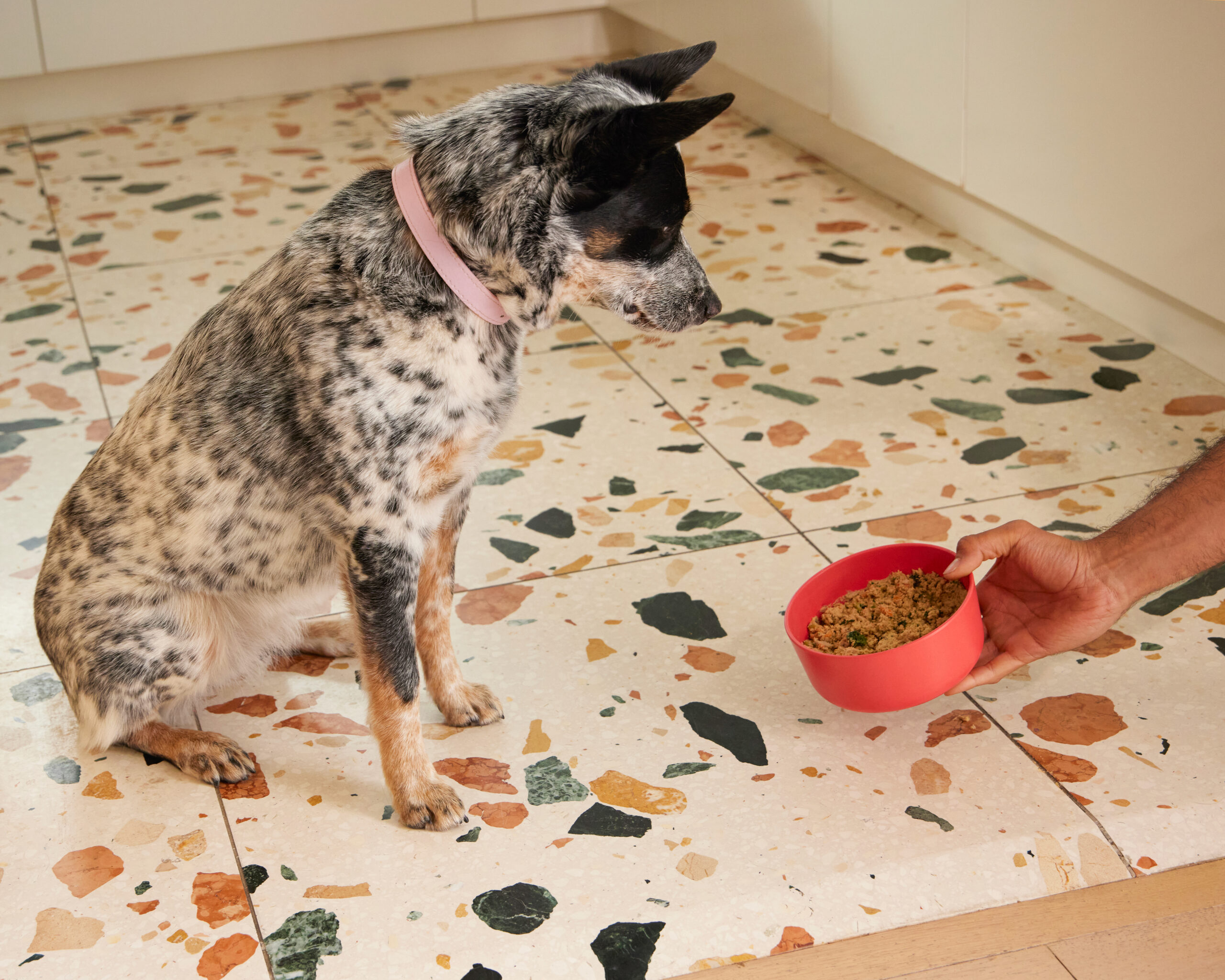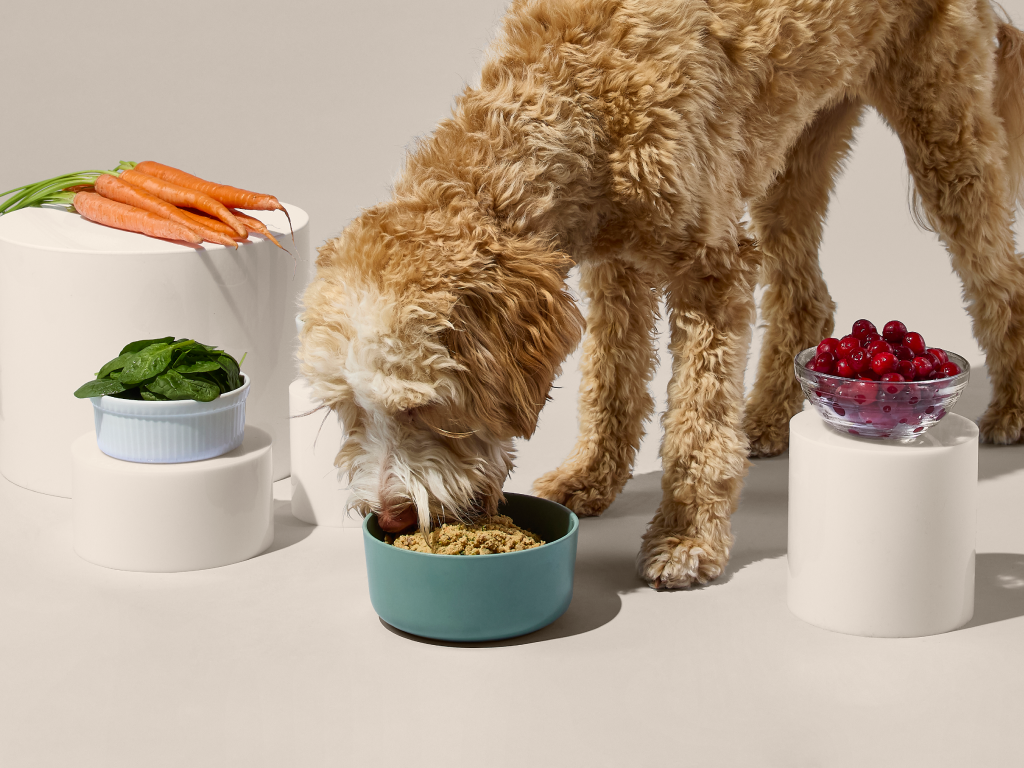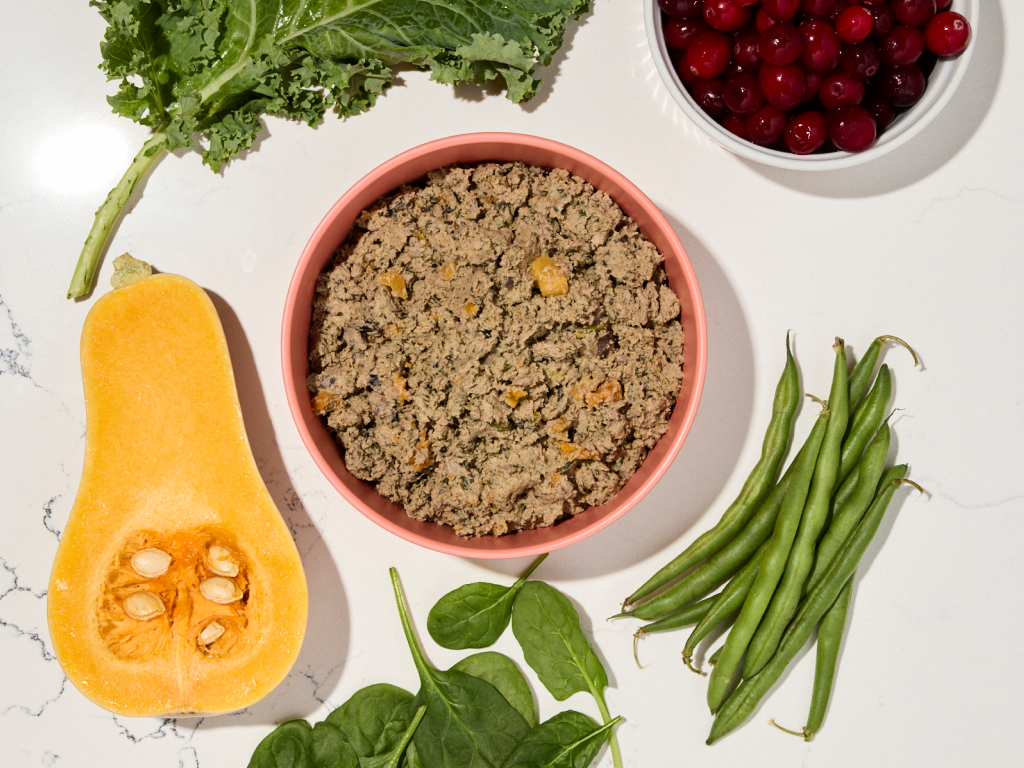Hey Ollie blog readers! We’re offering you an exclusive 60% OFF your starter box! Try now!
If your dog is constantly scratching, dealing with upset stomachs, or battling recurring ear infections, food allergies might be the culprit. Finding the right food for allergies can be a game-changer, offering relief and proper nutrition for your dog’s unique health needs. In this guide, we’ll explore the best dog food options for allergies, how they work, and why they can make a real difference in your pup’s life.
Understanding Food Allergies in Dogs
Food allergies in dogs occur when their immune system reacts to specific ingredients—often proteins—in their diet. Unlike food intolerances, which typically cause digestive issues, true food allergies can trigger a range of symptoms, from skin irritation to gastrointestinal distress. Identifying and managing these allergies is crucial for your dog’s comfort and long-term health[1].
Common Symptoms of Food Allergies
Recognizing the signs of food allergies is the first step to getting your pup the help they need. Watch for:
- Itching and Scratching: Persistent licking, chewing, or scratching, especially around the paws, face, or ears.
- Skin Irritations: Redness, rashes, or hot spots on the skin.
- Ear Infections: Recurring infections or inflammation in the ears.
- Gastrointestinal Issues: Vomiting, diarrhea, or gas after meals.
- Hair Loss: Thinning fur due to excessive scratching or skin issues.
If you notice these symptoms, consult your veterinarian to determine if food allergies are the cause and to explore specialized diets as a solution.
Common Allergens in Dog Food
Certain ingredients are more likely to trigger allergic reactions in dogs. According to veterinary experts, the most common culprits include:
- Proteins from dairy, beef, chicken, and eggs.
- Soy and wheat gluten, often used as fillers in commercial dog foods[1],[2].
Understanding these triggers can help you and your vet narrow down the best dietary options for your pup.
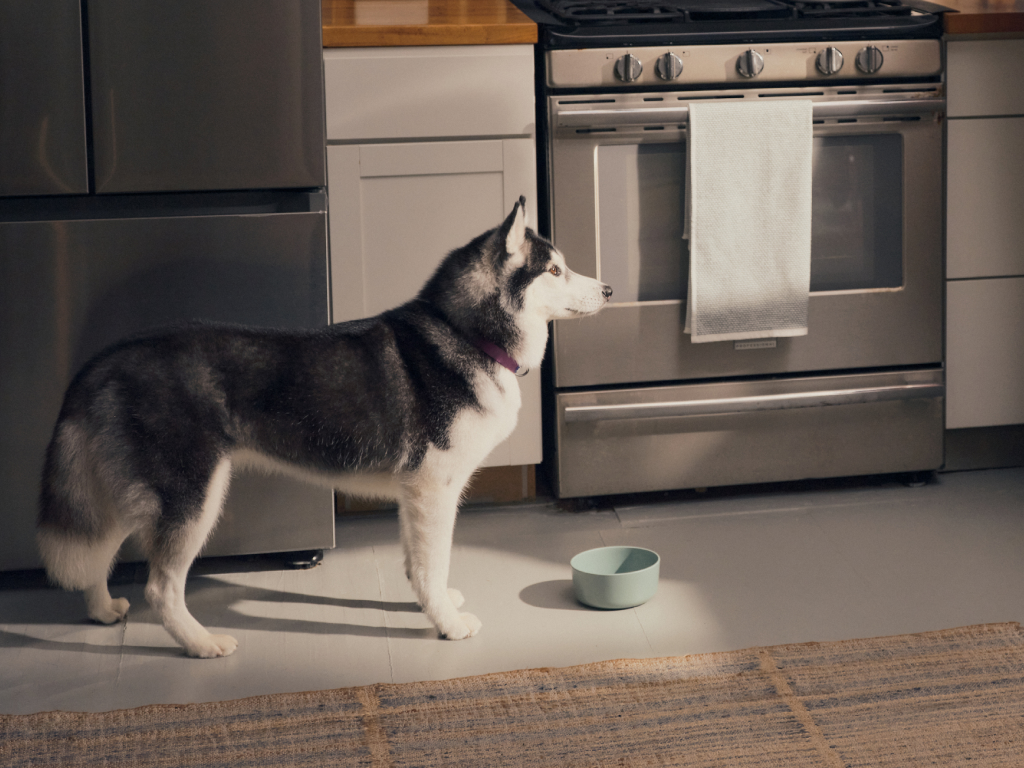
Diagnosing Food Allergies: The Elimination Diet Trial
Diagnosing food allergies in dogs isn’t as simple as a quick test. The gold standard, as recommended by veterinary professionals, is the elimination diet trial. This process involves feeding your dog a specialized diet for 8–12 weeks to identify potential allergens[2].
How It Works
Here’s a step-by-step breakdown of the elimination diet trial:
- Select a Test Diet: Work with your vet to choose a diet with novel proteins (ones your dog has never eaten, like alligator) or hydrolyzed proteins (broken down to minimize immune reactions)[1].
- Strict Feeding Period: Feed only the test diet for 8–12 weeks, avoiding treats, table scraps, or flavored medications that could interfere[2].
- Monitor Symptoms: More than 50% of dogs show improvement after 3 weeks, over 85% after 5 weeks, and more than 95% after 8 weeks on a diet trial[2].
- Diet Challenge: Reintroduce previous foods one at a time to confirm the allergy. If symptoms return, you’ve identified a trigger[1].
This process requires patience, but it’s the most reliable way to pinpoint what’s causing your dog’s discomfort. Ready to start? Talk to your vet about beginning an elimination trial with a specialized diet.

Top Dog Food Options for Allergies
Once food allergies are confirmed, the right diet can transform your pup’s quality of life. Specialized dog food for allergies falls into a few key categories, each designed to minimize allergic reactions while providing balanced nutrition. Here’s what you need to know about the best options.
1. Hydrolyzed Protein Diets
Hydrolyzed protein diets use proteins that have been broken down into smaller components, making them less likely to trigger an immune response. These diets are often recommended by veterinary nutritionists for dogs with severe allergies[1].
- Benefits: Minimizes allergic reactions; most dogs show improvement in itching or gastrointestinal upset within 4–8 weeks[2].
- Availability: Typically available through veterinary authorization due to strict manufacturing protocols that prevent cross-contamination.
2. Novel Protein Diets
Novel protein diets feature proteins your dog has likely never been exposed to, such as venison, rabbit, or alligator. Since your pup hasn’t built up a sensitivity to these ingredients, they’re less likely to cause a reaction[1].
- Benefits: Ideal for elimination trials; can be a long-term solution if nutritionally balanced.
- Considerations: Ensure the diet meets AAFCO nutrient standards for complete nutrition.
3. Home-Prepared Diets
For pet parents who prefer a hands-on approach, home-prepared diets formulated by veterinary nutritionists can be tailored to avoid specific allergens. These diets require careful planning to ensure they’re nutritionally complete.
- Benefits: Full control over ingredients; can be customized to your dog’s needs.
- Challenges: Time-intensive and requires expert guidance to avoid nutrient deficiencies.2][3]
4. Therapeutic Veterinary Diets
Therapeutic diets are specially formulated by veterinary nutritionists and produced under strict standards to avoid cross-contamination with allergens. They’re often the go-to choice for dogs with confirmed food allergies.
- Benefits: High-quality control; designed for long-term use with balanced nutrition.
- Availability: Requires a veterinary prescription, ensuring your pup gets the right formula for their needs.
| Diet Type | Key Feature | Best For | Availability |
| Hydrolyzed Protein | Proteins broken down to reduce reactions | Severe allergies | Veterinary prescription |
| Novel Protein | Unique proteins (e.g., alligator) | Elimination trials, mild allergies | Vet or specialty stores |
| Home-Prepared | Custom ingredients, vet-formulated | Pet parents wanting control | Requires vet guidance |
| Therapeutic Veterinary | Strict manufacturing, balanced nutrition | Confirmed food allergies | Veterinary prescription |
Why Quality Matters: Avoiding Cross-Contamination
When it comes to dog food for allergies, even trace amounts of an allergen can trigger symptoms. That’s why therapeutic veterinary diets are often recommended over over-the-counter options. These diets are manufactured with rigorous protocols to prevent cross-contamination, unlike many retail pet foods that may share production lines with allergen-containing products[1].
Emerging Research: Beyond Diet for Allergy Management
While specialized diets are the cornerstone of managing food allergies, research is exploring additional therapies. One such area is the development of vaccines to reduce or eliminate allergic reactions in dogs, as demonstrated in a small study at Stanford University[3]. Though not yet a standard treatment, these approaches could one day offer new hope for dogs if proven effective. For now, focus on finding the right diet with your vet, but stay tuned for advancements in canine allergy care.
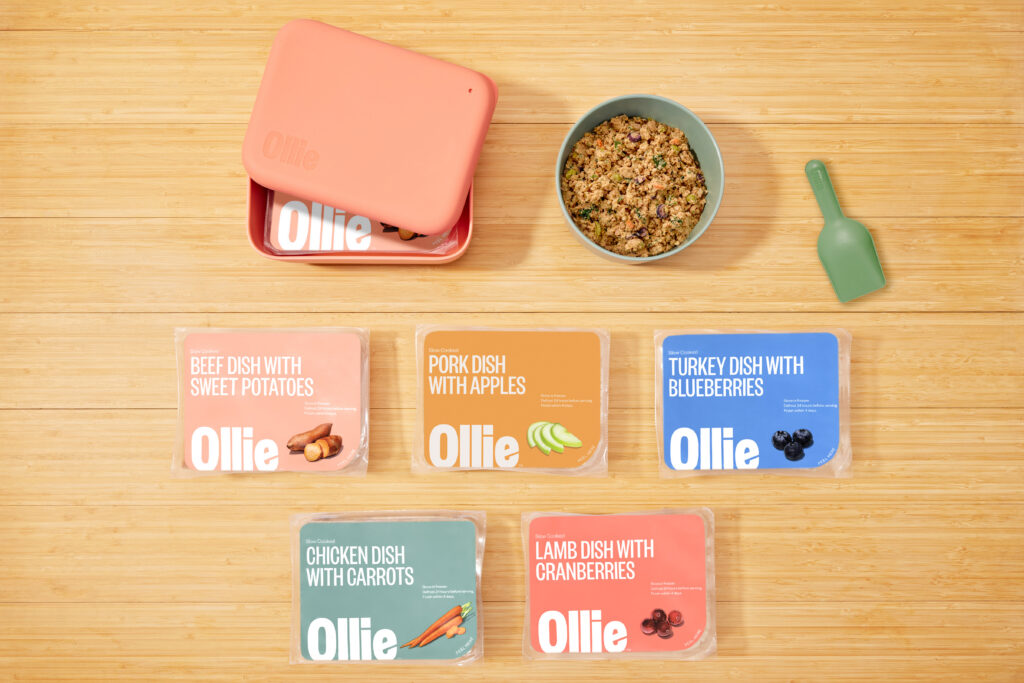
Take the Next Step with Ollie
At Ollie, we understand the challenges of managing your dog’s food allergies, and we’re here to help. Our recipes are crafted with high-quality ingredients and can be tailored to support your pup’s unique dietary needs. While we always recommend consulting your veterinarian for severe allergies, Ollie offers a starting point with fresh, nutritious meals designed with your dog’s health in mind. Curious to learn more? Visit our website to explore how Ollie can support your pup’s journey to better health.
Frequently Asked Questions (FAQs)
How do I know if my dog has a food allergy? Food allergies often present as itching, skin irritations, ear infections, or gastrointestinal issues like vomiting and diarrhea. If these symptoms persist, consult your vet to start an elimination diet trial for a proper diagnosis[1].
How long does it take for a specialized diet to work? Most dogs show improvement within 4–8 weeks on a specialized diet, with more than 95% showing improvement after 8 weeks[2].
Can I use over-the-counter dog food for allergies? Over-the-counter foods may meet AAFCO standards but often lack the strict manufacturing controls of therapeutic veterinary diets, risking cross-contamination with allergens. For severe allergies, vet-prescribed diets are the safest choice[1].
What are the most common food allergens for dogs? The most frequent allergens include proteins from dairy, beef, chicken, eggs, as well as soy and wheat gluten[1],[2].
Should I consult a vet before changing my dog’s diet? Absolutely. A veterinarian can guide you through an elimination trial, recommend the best specialized diet, and ensure your pup’s nutritional needs are met during the transition[1].
Citations
[1] https://avmajournals.avma.org/view/journals/javma/261/S1/javma.22.12.0548.pdf
[2] https://www.dvm360.com/view/diet-trials-the-true-test-of-food-allergies
Tagged As:

The nutrition your dog needs,
the food they want.

Enjoying our articles? Subscribe our Newsletters and get new articles directly to your inbox
You might also like
17 October 2025
6 MINS READ
Vital Fresh Dog Food Benefits for Your Dog’s Wellness
A longer, happier, healthier life starts with what’s in your dog’s bowl. Nutrition is the foundation of canine wellness, and what you choose to feed your pup has profound, lasting effects on t…
by Ollie Pets
29 September 2025
6 MINS READ
How Is Fresh Dog Food Made?
Unlike standard kibble that undergoes high-heat processing, fresh dog food maintains the natural integrity of ingredients while avoiding artificial additives and fillers. But what exactly goes int…
by Ollie Pets
29 September 2025
7 MINS READ
Is Lamb a Good Protein for Sensitive Stomachs?
Lamb provides significant nutritional benefits for dogs, particularly for pups with sensitive stomachs who need a specialized diet. This protein-rich meat offers an excellent alternative for pups …
by Ollie Pets
